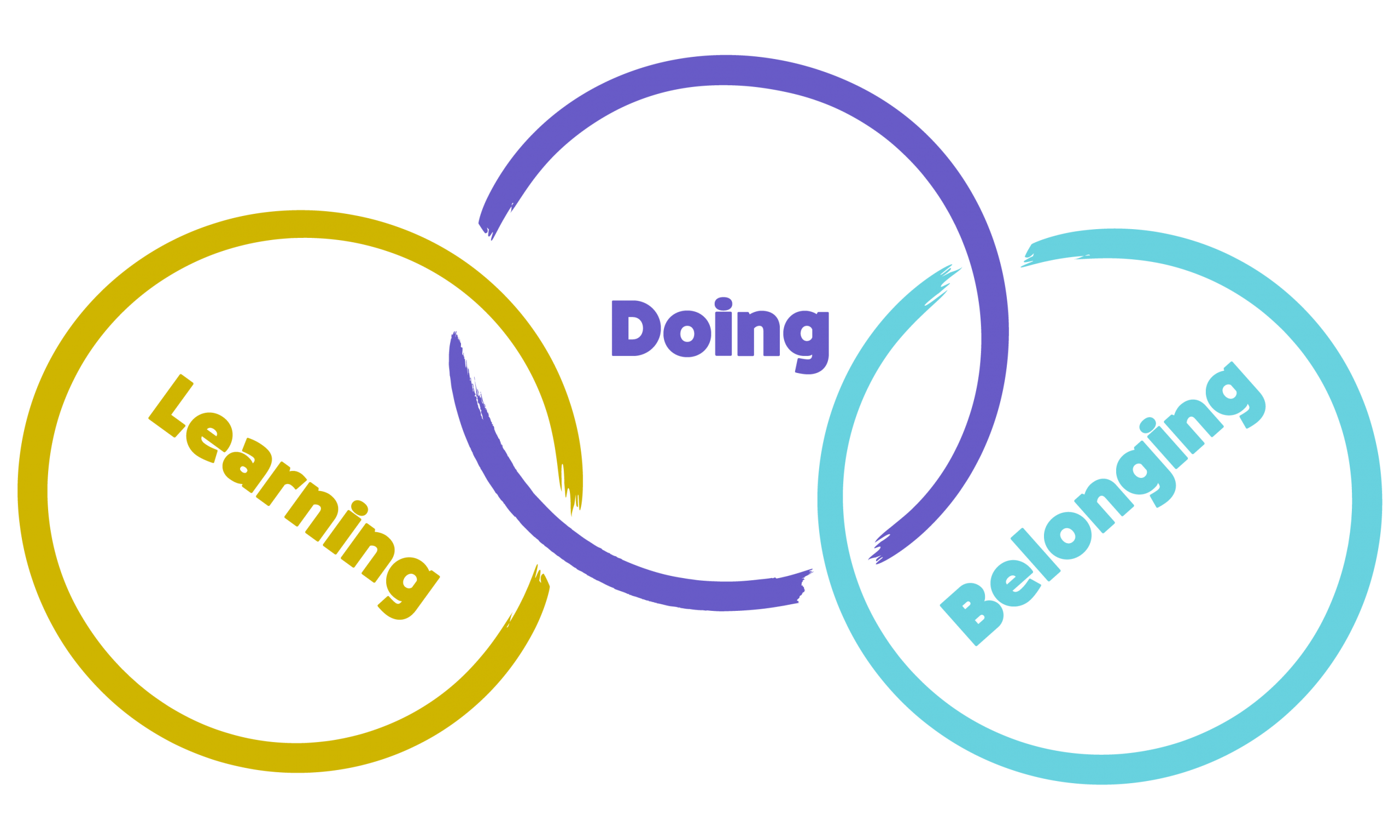Learning
Learning summarises our entire approach to the work. We believe everyone is engaged in a constant process of learning, and that such a process is fundamental to wellbeing – it is through learning about ourselves and others that we are able to make space for change. However, this is not teacher-student learning, which can create passivity and take knowledge out of its real-world context. Instead, learning rests on people being able to engage with the complex reality of their worlds, worlds only they have access to. Whilst learning is supported with concepts and knowledge frames, it is most fundamentally experiential. This creates ownership and engagement and sets up the course for action as problem solving becomes focussed on lived realities.
Other people can support in that learning process, but only as learners themselves. They need to be willing and capable of learning from the complex reality of another’s world, whilst meeting this with an awareness of their own feelings, assumptions, and meaning-making. This allows them to be alongside someone, mutual learners rather than imposers of knowledge.
The learning frame of mind is an open one that means we are always open to the multitudes of people rather than fitting them into any pre–conceived notions. It allows us to engage with difference rather than fear it, expanding our own horizons through that encounter.
It also means we can be open about mistakes – a learner is not tied to the expectation of expertise, and is more inclined to accept and build on their mistakes rather than hide or dismiss them. Real learning requires such failure, as it provides fertile ground for real growth.
We recognise that this mindset is far from easy. Our brain’s are built to limit the energy we expend, and it is far easier to revert to our pre-existing picture of the world. We often have such pictures reinforced by our environments and our habits. As such, learning can be loaded with discomfort, like struggling with shoes that no longer fit. We try to create spaces that allow us to move through this struggle safely.
Doing
Doing refers to the vital fact that this process is active – to be active in the world, we need to be doers. It is only through experience that we discover our own potential and that of the world.
Doing is also pragmatic – where we can do something, we will. Many people have told us how this is often not the case in the services they interact with due to rules, bureaucracy, or tightly–defined practice. We want to support people to take advantage of opportunity in all its diversity – if that means changing a lightbulb, attending a karate group, or a spontaneous singalong in the middle of a meeting, we do what we can to let it happen.
However, doing can be far more subtle, such as being quietly present with someone in silence, or in seeing the need to step back and allow another to fill the space. These both require learning and decision-making, but the result is not more activity but less. ’Doing’ is a process of learning as much as it is an action.
At Likewise, we aim to be the scaffolding for our clients’ and our communities’ doing, providing the space to explore the experiences that might be stepping stones to new ways of being in the world. We do not expect this doing to always feel good – working through discomfort, difficulty, and the sometimes painful process of realising what doesn’t work is a vital component of growth.
Belonging
These kind of changes are most possible in the context of a community that values you for who you are, as you are, rather than a sense of what you could or should be. When you are valued as you are, risk, change, and failure become safer – regardless of struggle or mistake, you remain valued and loved. This safety means these difficulties are not things to be afraid or ashamed of, and so can be springboards for change. Acceptance and belonging are the bedrock of learning and doing, allowing each of us to make the most of any opportunities or challenges that come our way.
A fundamental feature of belonging and acceptance is in recognising our shared humanity. As people, we all make mistakes and lose sight of what really matters; we all feel sad, angry, scared or judgemental; we all need connection; we can all find life difficult; we can all feel like we are not good enough; we all want joy and laughter. Creating a sense of belonging requires us to recognise and celebrate these features of our lives – they are what make us human, and not something to hide from.
Interdependence
We are all deeply connected through complex webs of relationships. In one sense, this is a wonderful advantage – the more supportive connections we have to individuals and communities, the more likely we are to be supported when the inevitable changes of life make things difficult for us. In return, as we become more emotionally intelligent or more open, we will be able to provide a similar space for the hundreds of others we meet over the course of their lives. On the other side of the coin, we might have an individual or a space that allows us to be ourselves for just a few hours a week – for the rest of their week, our identity and sense of self is at the whim of very different kinds of experiences which may not allow us to feel comfortable in our skin or value us for who we are.
Interdependence is thus a fundamental principle that encourages Likewise to look not just at individuals, but at their context and relationships; to think not just about our own mission, but of ways to influence and change the system that we exist in; and to recognise that our own goals are intimately tied to those of our community. It allows us to recognise that the real causes of and solutions to our personal and social problems lie at both the individual and the systemic level – to maximise impact, we have to be aware of both.





